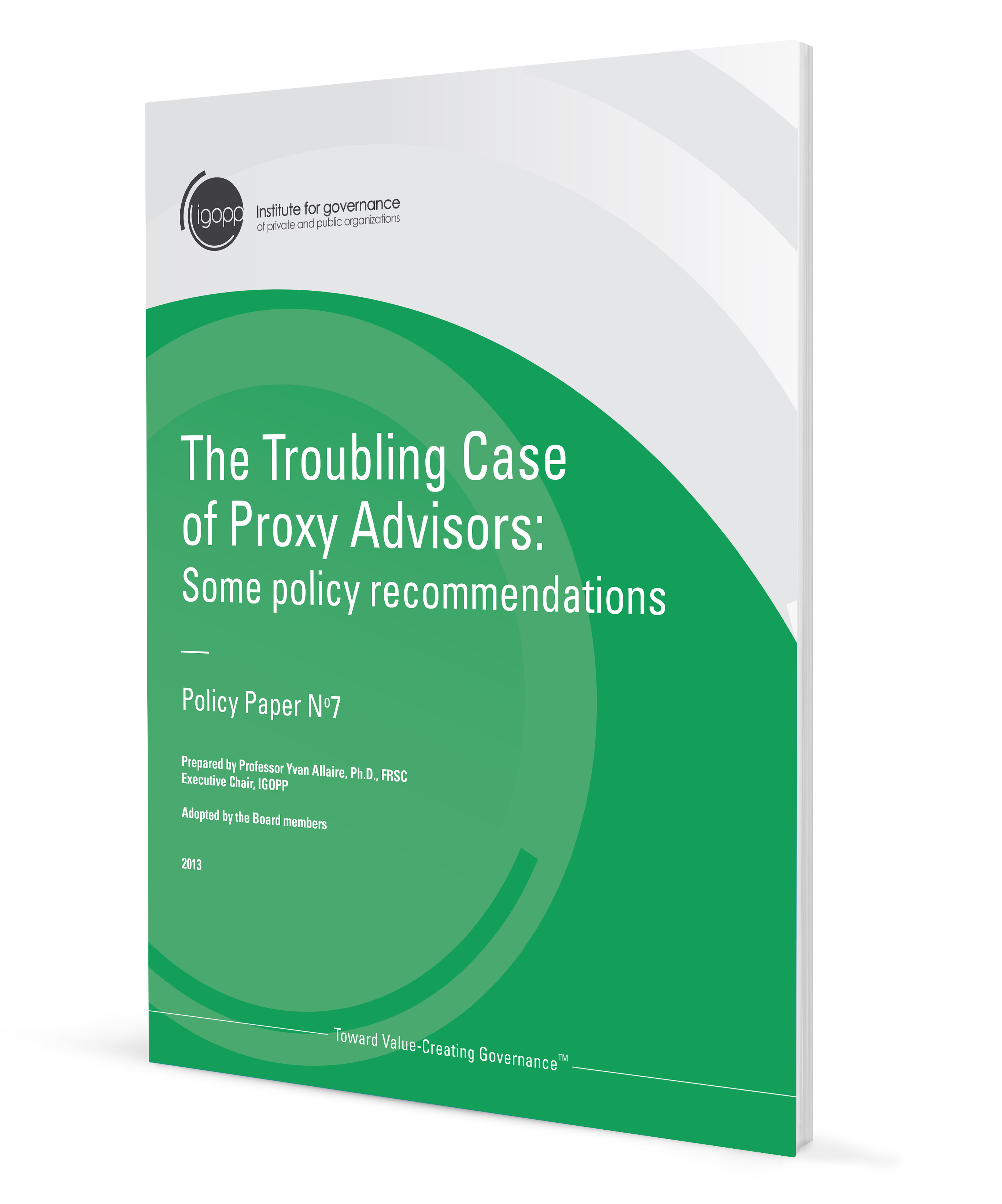
The Troubling Case of Proxy Advisors: Some Policy recommendations
IGOPP's 7th Policy Paper
This policy paper makes recommendations to institutional investors as the prime clients of proxy advisors and to securities commissions as the protectors of the integrity of financial markets.
For a variety of reasons, proxy advisors have come to exert undue influence on the governance of companies listed on the stock markets and to play a troubling role in all contentious situations in which certain shareholders are opposed to the positions of boards of directors. Understandably, these proxy advisors are already subject to close scrutiny by Canadian securities regulatory authorities. The latter should propose an appropriate supervisory framework regarding the issues raised as a result of this relatively recent phenomenon.
Institutional investors, who are these proxy advisors’ principal clients, should also be concerned about the quality and reliability of the information provided to them by these advisors. Moreover, when applicable, institutional investors should publicly state their disagreement with certain rules and guidelines on which the proxy advisors’ recommendations are based.
These recommendations have been put forward by the Institute for Governance of Private and Public Organizations (IGOPP), in a Policy Paper prepared by its Executive Chair of the Board, Dr. Yvan Allaire, as part of a new study on The Troubling Case of Proxy Advisors.
This IGOPP paper raises several thorny issues concerning:
- The business models used by these advisors so as to be able to produce thousands of reports and recommendations in just a few weeks, in the spring of each year;
- The ownership structures of these advisory firms, in particular of ISS, the largest of these firms, which combines, in one company, a proxy advisory service and a governance advisory service offered to companies that are themselves the subject of annual reports to investors concerning their governance;
- The roles of these advisors in merger/acquisition transactions and in proxy contests by activist funds.


